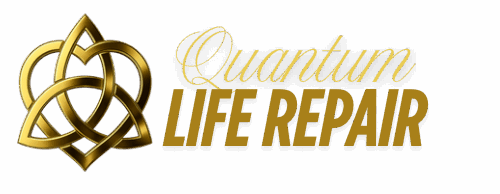Anger is a powerful emotion, one that can be destructive if left unbridled. While outbursts of anger can be beneficial in certain situations, it can also lead to negative relationships, feelings of guilt, and physical and emotional harm. Fortunately, Cognitive Behavioral Therapy (CBT) provides tools to help temper and channel anger into more constructive behaviors. This article will explore the relationship between anger, CBT, and strategies to more productively manage anger.
Table of Contents
- Anger Unhinged: Recognizing the Need for Change
- One Possible Solution: Manage Anger with Cognitive Behavioral Therapy
- Strategies for Putting Cognitive Behavioral Therapy into Practice
- Gaining Control: The Outcomes of Applying Cognitive Behavioral Therapy
- FAQ: Manage Anger with Cognitive Behavioral Therapy (CBT)
- Conclusion: Manage Anger with CBT
- About Dr. Gary Danko
- Connect with Dr. Danko
- Further Reading
Anger Unhinged: Recognizing the Need for Change
Anger is a normal emotion and can even be beneficial in certain situations, allowing us to defend ourselves or to express powerful emotions. However, when anger is repeatedly used to harm others or is internalized and generated in a destructive manner, it can become an unhelpful habit. When anger is uncontrolled, it can lead to guilt and remorse, health effects such as increased blood pressure and headaches, and even depression. Further, others may avoid interaction out of fear or mistrust. This can lead to loneliness, isolation, and difficulty transitioning back into society. Recognizing the need to change our reactions is thus the first step in making improvements. If you are a person who has the need to manage anger, CBT could be the answer you’re looking for.
One Possible Solution: Manage Anger with Cognitive Behavioral Therapy
Cognitive Behavioral Therapy (CBT) is a type of psychotherapy that focuses on personal behaviors, thoughts and ideas about themselves, and the changes necessary for improvement. CBT can be used in treating various mental health issues, including depression, anxiety, and substance abuse disorder. It is also particularly helpful in managing anger and understanding how to properly process it. At its core, CBT teaches individuals to recognize their anger and to modify their thinking, behaviors, and emotions accordingly. Through different cognitive strategies, people learn to take responsibility for their own thoughts, feelings, and behaviors and to make healthier decisions about how to express them. With this guidance, people experiencing out of control anger can develop a better understanding of their triggers and learn how to better respond to them.
Strategies for Putting Cognitive Behavioral Therapy into Practice
Having a better understanding of our triggers is a crucial part of addressing anger. CBT provides a wide range of strategies to help individuals confront and manage these triggers:
- Identifying Triggers: An important part of the therapy is understanding which emotions and external influences trigger your anger. CBT can help identify these triggers and provide insight into one’s patterns and cycles of anger.
- Reframing and Challenging Thinking: Through careful thought and consideration of your emotions, beliefs, and judgments, CBT works to identify irrational or mistaken thinking and uncover ways to reframe the situation for a more helpful and constructive outlook.
- Deep Breathing and Relaxation Strategies: Calming, relaxation techniques such as deep breathing and progressive muscle relaxation, can help to reduce the intensity of the anger response.
- Analyzing Behaviors: Through the analysis of maladaptive behaviors and thinking patterns, CBT teaches how to change responses to those anger triggers and prevent outbursts.
- Holistic Learning: Learning to recognize the impact of stress, diet, exercise, and lifestyle on our emotions and how best to manage them is an important lesson taught by CBT.
Successfully managing anger demands striving for balance between thinking and feeling. Reorienting our thoughts to a more positive and helpful mindset is key in transforming our behavior, overcoming old habits, and developing a more constructive response to instability and hostility.
Gaining Control: The Outcomes of Applying Cognitive Behavioral Therapy
When individuals learn to manage their own anger, not only do their own lives improve but their relationships with others. Through CBT, individuals learn to better manage their emotions and reactions without sacrificing personal integrity or moral boundaries. Gradually, anger responses can become healthier, more appropriate reactions rather than violent or passive outbursts. By living with an awareness and application of CBT tactics, individuals can better confront their turmoil and transform everyday life. Over time, through personal responsibility, deeper self-awareness, and careful practice, individuals can gain control of their anger and develop a more healthy approach to life.
FAQ: Manage Anger with Cognitive Behavioral Therapy (CBT)
A: CBT addresses anger by helping individuals recognize the thoughts, feelings, and behaviors that contribute to their anger. It focuses on understanding the root causes of anger, identifying anger triggers, and teaching effective coping strategies to manage anger responses healthily.
A: The CBT formulation for anger involves identifying the specific situations that trigger anger, understanding the thoughts and interpretations that occur during these situations, and recognizing the emotional and physical responses to these thoughts. It also involves analyzing the behavioral responses to anger and how they impact the individual and those around them. This formulation helps in creating targeted strategies to manage anger.
A: The CBT triangle for anger illustrates the interconnection between thoughts, feelings, and behaviors. In the context of anger:
– Thoughts: Negative or irrational thoughts that can trigger anger in response to certain events or situations.
– Feelings: The emotional response to these thoughts, including anger, frustration, or irritation.
– Behaviors: The actions taken in response to these feelings, which can be aggressive, withdrawn, or constructive.
A: While several therapeutic approaches can help with anger management, CBT is widely recognized as one of the most effective. It provides practical skills for managing thoughts and behaviors that contribute to anger. This makes it a preferred choice for many professionals and individuals.
Conclusion: Manage Anger with CBT
Cognitive behavioral therapy has been used successfully to address a wide range of mental health problems. This includes issues specific to anger. By recognizing the need for change, focusing on personal behavior, and leveraging the right strategies, individuals can gradually develop healthier reactions. They can also better understand their triggers, and more effectively channel their anger into positive behavior. It is important to remember that while anger is a valid emotion, it can be destructive. CBT offers a way to reign in our anger. This allows us to be aware and in control of the powerful emotion. This works for the betterment of ourselves, our relationships, and the world around us.
About Dr. Gary Danko
Dr. Gary Danko, PhD, is a renowned expert in Metaphysical Psychology and a Certified Hypnotherapist based in Clearwater, Florida. With a profound commitment to fostering wellness, Dr. Danko specializes in unlocking the human mind’s potential, guiding individuals towards a healthier, happier, and more fulfilling life. His holistic approach integrates spirituality, physical health, and mental well-being, offering a unique perspective on personal growth. Passionate about deep, meaningful conversations, Dr. Danko explores the intricacies of the human spirit and mind, providing insights that enlighten and inspire.
Connect with Dr. Danko
Are you ready to embark on a journey towards a more fulfilling life? Discover the transformative power of metaphysical psychology and hypnotherapy with Dr. Gary Danko. Schedule your Free Discovery Session today and take the first step towards unlocking your true potential. Whether you’re seeking spiritual growth, mental clarity, or physical well-being, Dr. Danko’s expertise will guide you on the path to success. Don’t miss this opportunity to transform your life. Contact Dr. Danko now for your free session and experience the change you’ve been longing for!
Further Reading
Unlock Successful Weight Loss: Discover the Power of CBT!
Cognitive Behavioral Therapy: A Closer Look
Do Hypnosis and CBT Work for Weight Loss?



Add your first comment to this post
You must be logged in to post a comment.